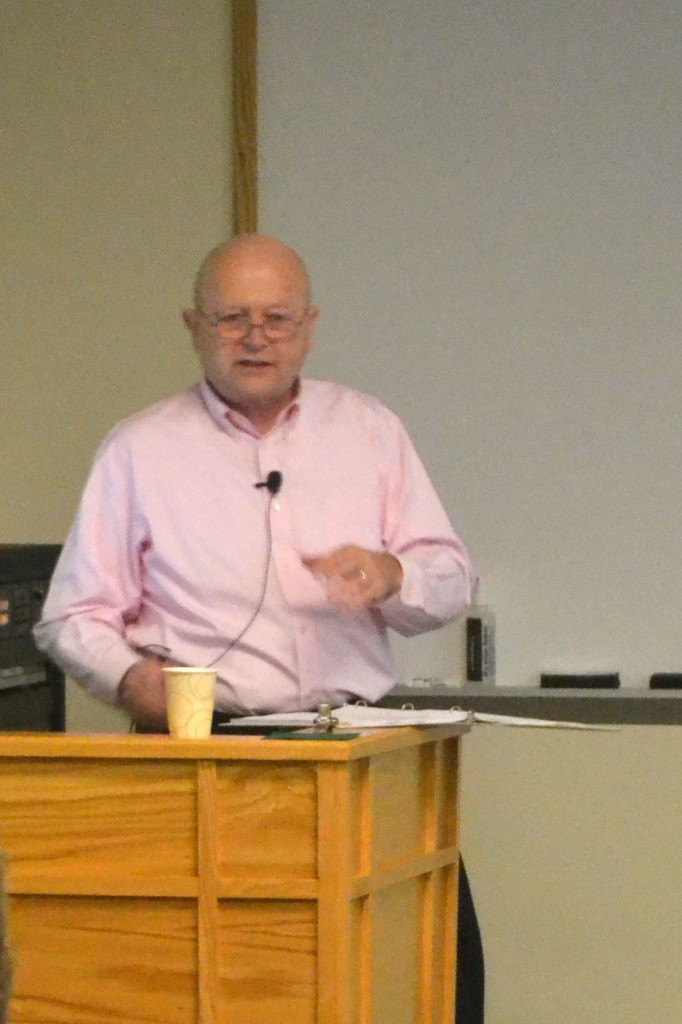
Fifteen people, mostly professors, attended a presentation on Thursday about transforming the city of Binghamton into a sustainable economy through localization, the reduction of dependency on export markets by promoting local production and development.
The presentation, “Transactional to Transformational Change: Connecting Communities and Universities Sustainably,” was given by David Currie, executive director of the Binghamton Regional Sustainability Coalition (BRSC), and was sponsored by SUNY Business and Education Cooperative (SUNY BEST).
Thomas Kowalik, director of SUNY BEST, said Currie was chosen to speak because of his intense interest in economic recovery and his ideological alignment with SUNY BEST, a volunteer organization dedicated to improving the Southern Tier.
“An important aspect of regional economic development is the concept of enhancing sustainable community and economic development,” Kowalik said. “David was selected for this month’s presentation because of his expertise and passion in the area of sustainability.”
Currie, who started his career in health services, gravitated towards civic volunteering throughout his life and became executive director of the BRSC in 2010.
According to Currie, Binghamton faces many challenges that can be solved by localization and the proper utilization of anchor institutions, large economic forces like as Binghamton University. Currie talked about other universities, such as UCLA, Tufts University and Emory University, who have become highly involved with their communities and have used their leverage in favor of the community involvement.
“Nationally, universities and higher education schools have $350 billion worth of purchasing power,” Currie said. “They have assets, they have real estate, they have endowments, they do education research and they have technical expertise.”
According to Currie, localization would be beneficial to the Binghamton community, as globalization is too dependent on cheap fuel to be sustainable.
“The longer the distance is between the consumer and the product that’s being made, or grown, the higher the cost, so we’re going to be forced into localizing,” Currie said.
Currie is looking forward to Binghamton University President Harvey Stenger’s tenure, citing Stenger’s interest in becoming involved with the community.
“I’ve never been more optimistic, never,” Currie said. “The timing almost seems perfect that Tom Kowalik invited me to come and give this talk and that we worked out this topic, which I think is absolutely relevant to what our new president is saying.”
Christopher Lingle, a senior majoring in biochemistry, said he attended the presentation because he wanted to learn more about sustainability. He said he was impressed by Currie.
“The keynote speaker was intelligent and captivating,” Lingle said. “I like that he strongly encouraged both students and staff to become more involved in sustaining our community.”


